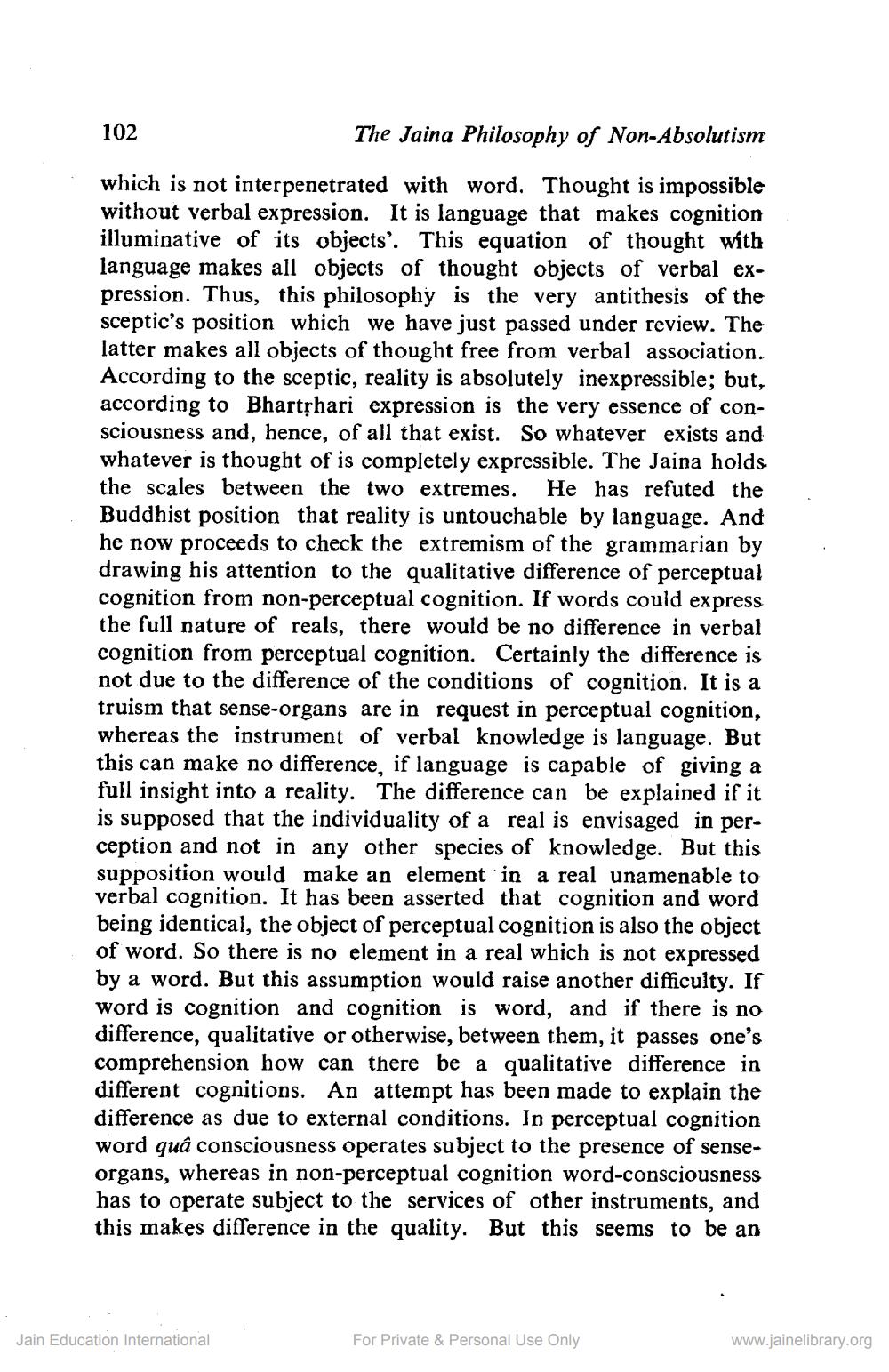________________
102
The Jaina Philosophy of Non-Absolutism
which is not interpenetrated with word. Thought is impossible without verbal expression. It is language that makes cognition illuminative of its objects'. This equation of thought with language makes all objects of thought objects of verbal expression. Thus, this philosophy is the very antithesis of the sceptic's position which we have just passed under review. The latter makes all objects of thought free from verbal association. According to the sceptic, reality is absolutely inexpressible; but, according to Bhartrhari expression is the very essence of consciousness and, hence, of all that exist. So whatever exists and whatever is thought of is completely expressible. The Jaina holds the scales between the two extremes. He has refuted the Buddhist position that reality is untouchable by language. And he now proceeds to check the extremism of the grammarian by drawing his attention to the qualitative difference of perceptual cognition from non-perceptual cognition. If words could express the full nature of reals, there would be no difference in verbal cognition from perceptual cognition. Certainly the difference is not due to the difference of the conditions of cognition. It is a truism that sense-organs are in request in perceptual cognition, whereas the instrument of verbal knowledge is language. But this can make no difference, if language is capable of giving a full insight into a reality. The difference can be explained if it is supposed that the individuality of a real is envisaged in perception and not in any other species of knowledge. But this supposition would make an element in a real unamenable to verbal cognition. It has been asserted that cognition and word being identical, the object of perceptual cognition is also the object of word. So there is no element in a real which is not expressed by a word. But this assumption would raise another difficulty. If word is cognition and cognition is word, and if there is no difference, qualitative or otherwise, between them, it passes one's comprehension how can there be a qualitative difference in different cognitions. An attempt has been made to explain the difference as due to external conditions. In perceptual cognition word quâ consciousness operates subject to the presence of senseorgans, whereas in non-perceptual cognition word-consciousness has to operate subject to the services of other instruments, and this makes difference in the quality. But this seems to be an
Jain Education International
For Private & Personal Use Only
www.jainelibrary.org




